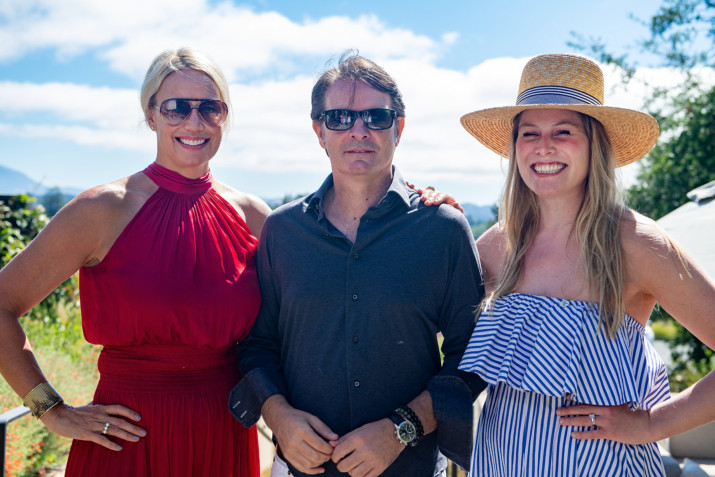
by Elisa Klein | Aug 28, 2021 | Feature, General, News
A lifestyle story: Sonoma, CA. A group of wine lovers gathered at the Flowers Vineyards & Winery on the Sonoma Coast. The August 1st brunch was hosted by Exclusive Resorts, the winery, and Porsche Marin. The event celebrated the joys of travel and the launch of the latest issue of Curated Magazine. Erin Lentz, Editor in Chief of Curated Magazine, posed for a photo with Exclusive Resorts CEO James Henderson and, Exclusive Resorts Senior Director of Marketing Caitlin Austin.
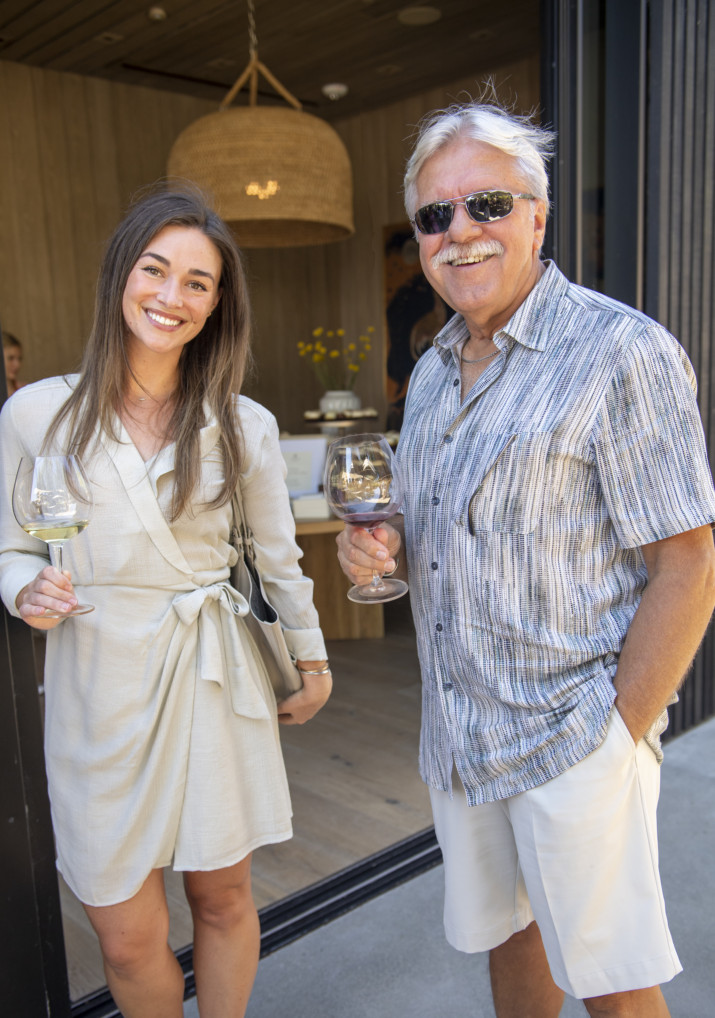
Allison James and Harry Vacek
88 prominent business leaders and travel lovers attended the event to learn more about the Club’s Members-only portfolio of luxury residences and vacation experiences. They enjoying live music, fresh and innovative bites from local restaurants including Oyster Girls, The Farmer’s Wife, Zazu, and Noble Folk, as well as cupcakes paired with a sampling of Flower’s finest vintages. Guests also test drove the new Porsche Taycan in addition to the Porsche 911 provided by Porsche Marin.
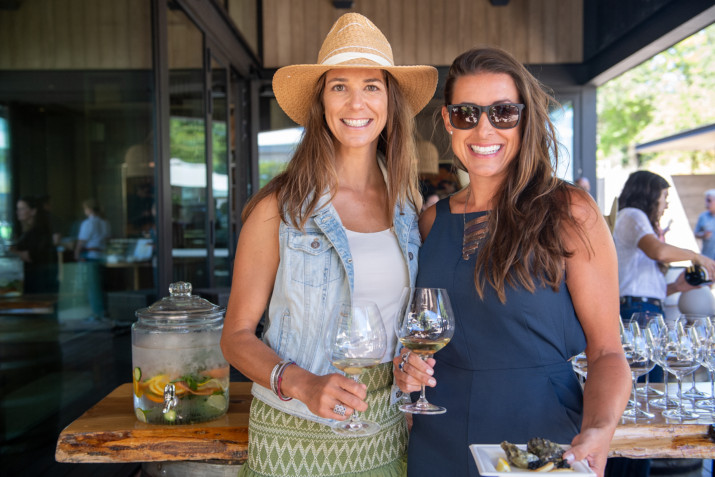
Caroline Smith and Miranda Hartridge
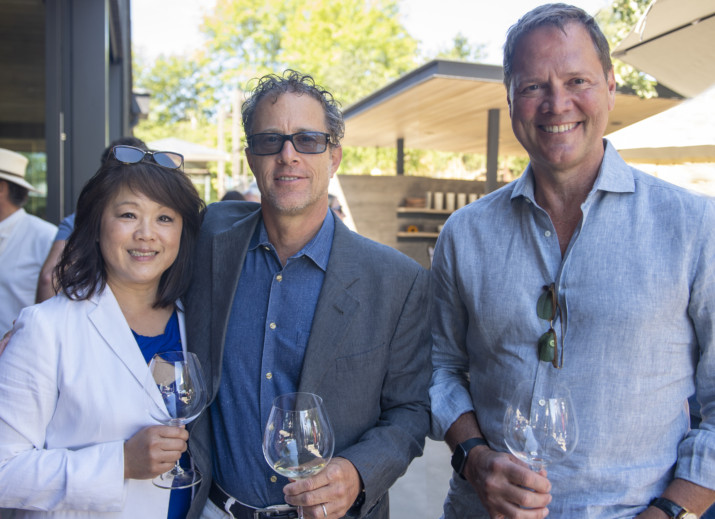
Charisse Fazzari, Dr. Jordan Shlain (Founder of Private Medical) and Mark Long

David & Tiffany Lewis and David & Jill Anderson

Erin Lentz, Editor in Chief of Curated Magazine, Rachel Regan, Exclusive Resorts SVP of Sales and Karrie Sims
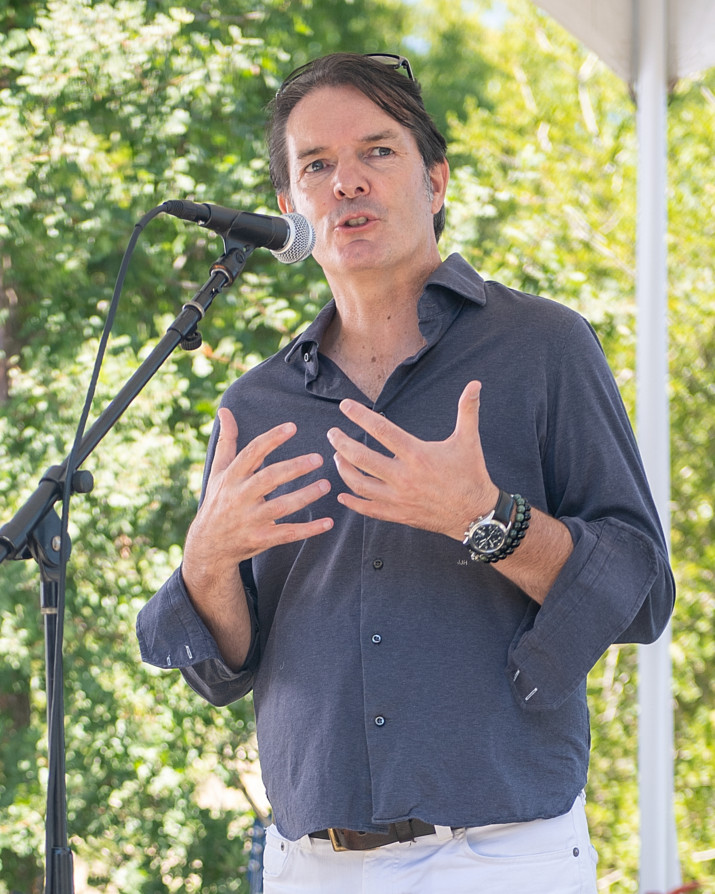
Exclusive Resorts CEO James Henderson addresses the attendees.

Kevin Boswell, Gioia McCarthy, Sean McCarthy, and Elliot Schreiber
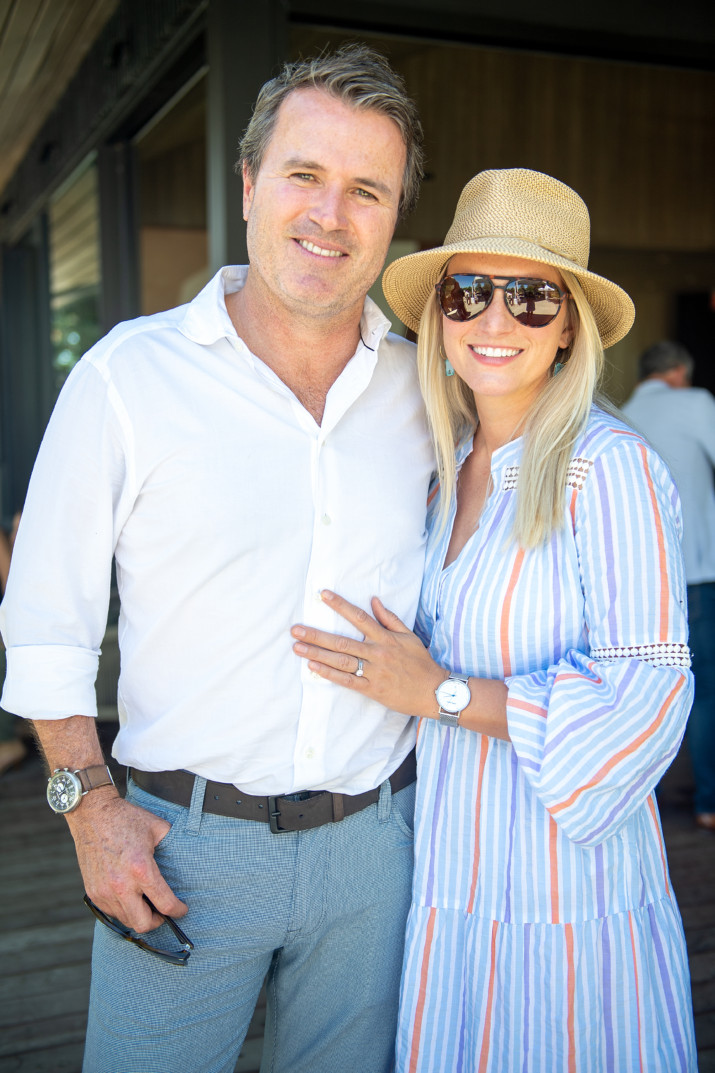
Nick Withers, President of Huneeus Vintners, and his wife Ashley Withers
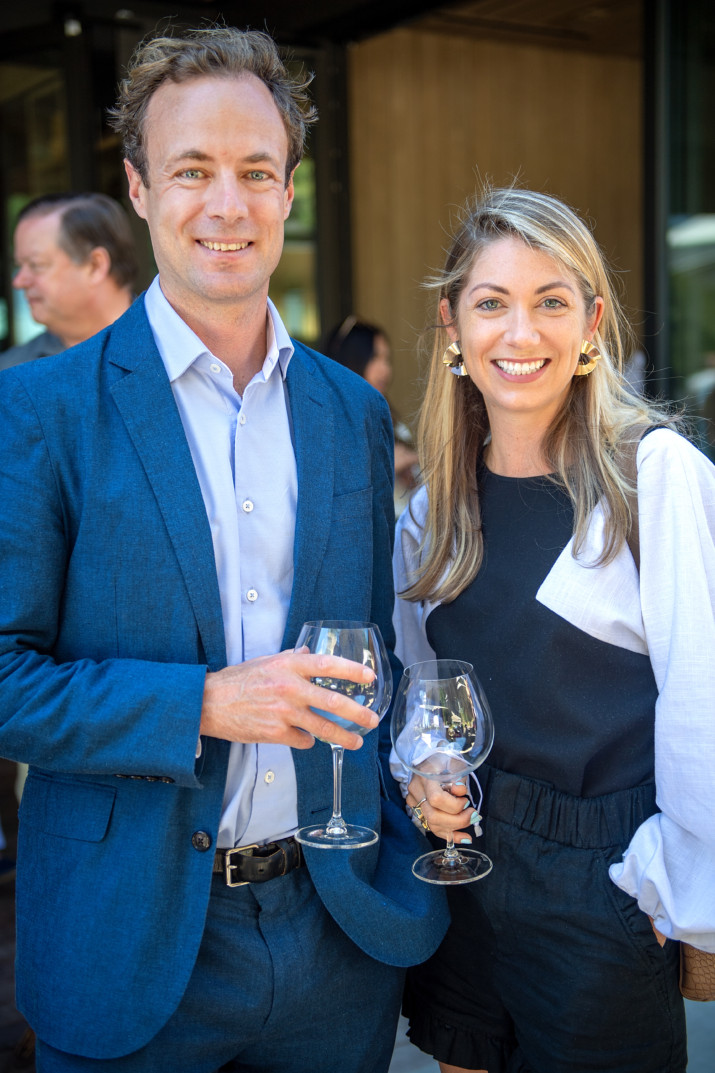
Sam Highley, Founder of All Roads North, Stefanie Schoen, Founder of The Style Safari

Mary Allan, James Henderson, Jen & Phil Bodem
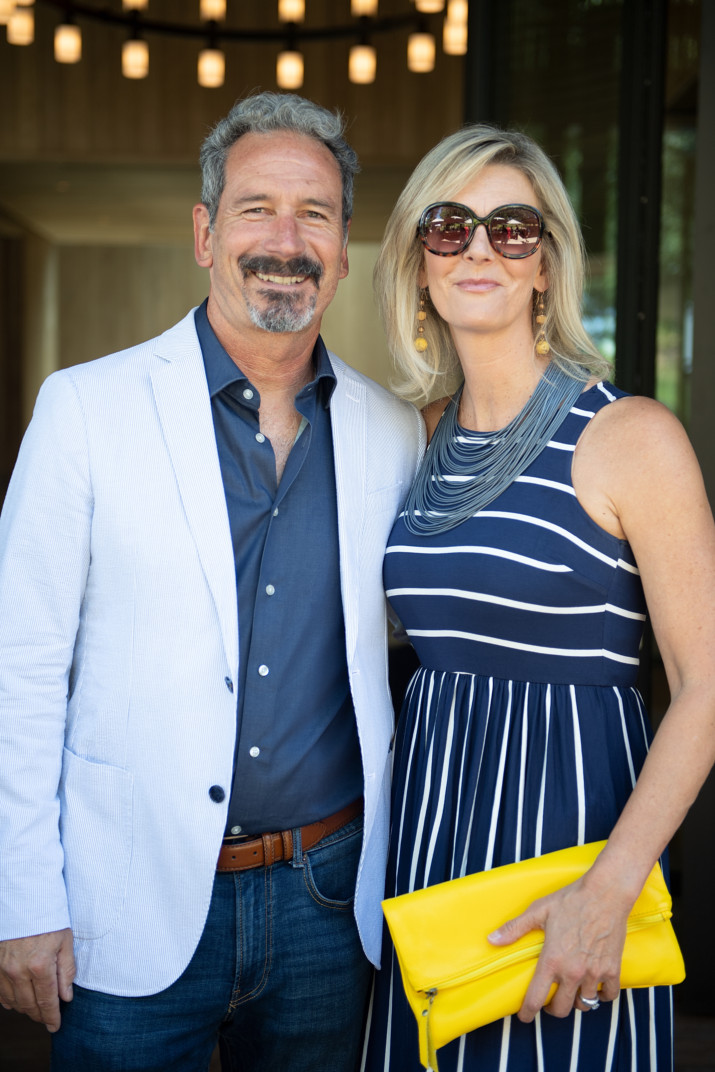
Owners of Phifer Pavitt Wine Shane Pavitt and Suzanne Phifer-Pavitt
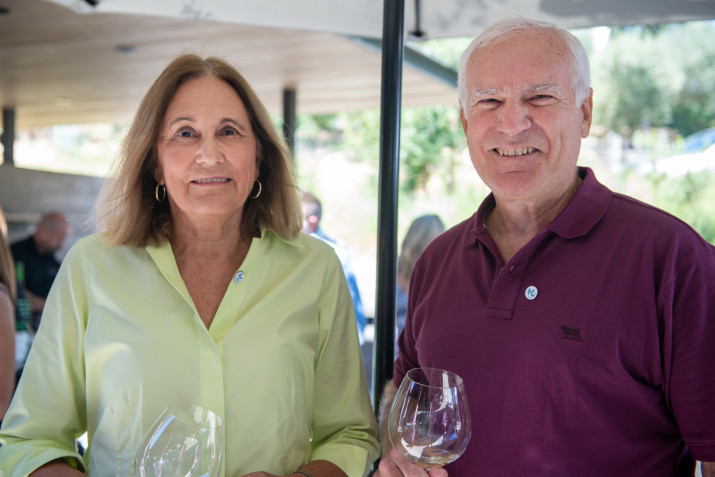
Nancy and Bruce Worthington
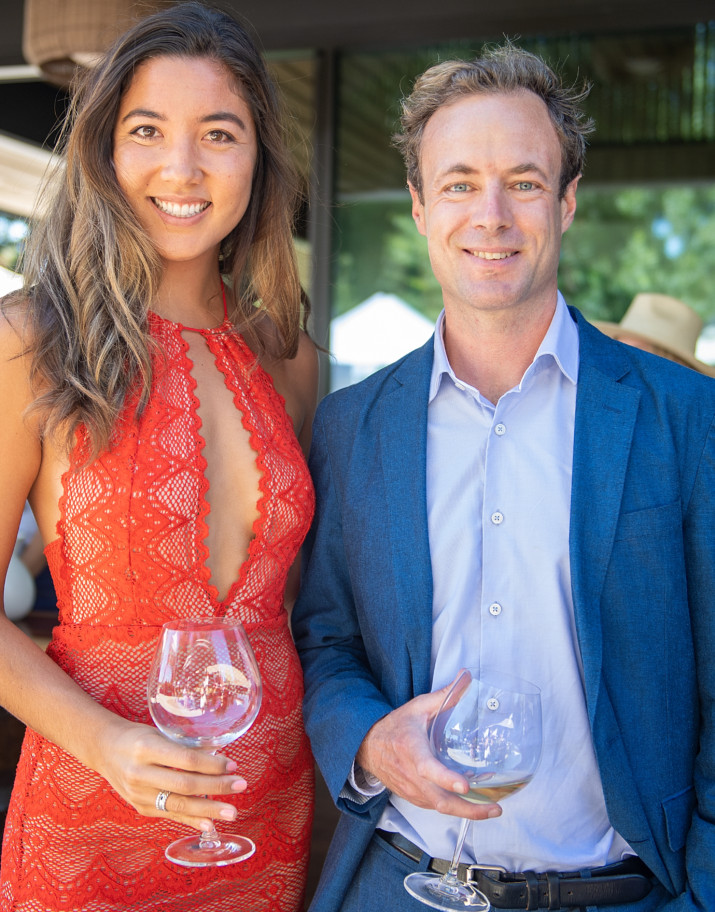
Sophia Yamauchi & Sam Highley

Taylor Gross and Setahrae Javanbakht
From Flowers Vineyards & Winery:
Nearly 30 years ago, Flowers Vineyards & Winery pioneered the growing of Pinot Noir and Chardonnay on the rugged coastal ridges of the extreme Sonoma Coast. Joan and Walt Flowers had a simple goal — make exceptional wine that captures the wild beauty of the land and the spirit of the Sonoma Coast. This passion drives everything we do — farming responsibly, harvesting by hand, using 100% native fermentation, and crafting wine with minimal intervention. Our unwavering commitment to creating distinctive wines that capture the spirit of the Sonoma Coast has been the bedrock of our success and will continue to guide us for years to come.

by Elisa Klein | Aug 11, 2021 | Coming Up, Feature, General, News
San Francisco, CA. The Exploratorium is gearing up for a series of in-person and online events exploring an ocean buoy and life under the San Franciso Bay. Tickets to attend in-person events, August 19-20, are available for purchase on the Exploratorium website. The online program can be viewed on the Exploratorium’s Facebook page and YouTube channel. In-person and Online Programs Explore Life Under the San Francisco Bay.
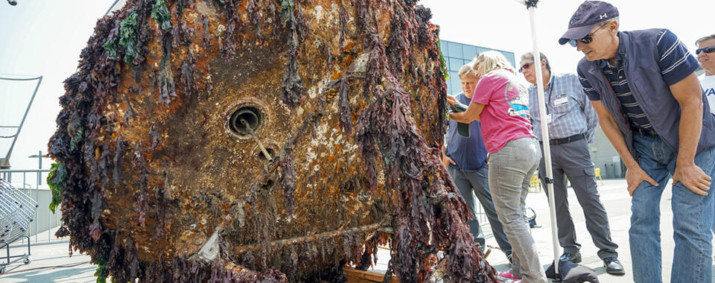
There are many other programs.
Here are the details from The Exploratorium:
Tuesday, August 8 to Monday, August 13, 2018: Have you ever wondered what’s inside a scientific ocean buoy? Take a close look at the critters and seaweed that colonize the bottom of the buoy when we pull our NOAA CO2 buoy out of the water for its yearly servicing.
On Buoy Exploration Day, we’ll provide microscopes, hand lenses, and activities that get you up close and personal with the animals and plants that call San Francisco Bay their home. Scientists from the iNaturalist citizen science team at the California Academy of Sciences will be on hand to identify and catalog the marine organisms, both native and invasive species that live in San Francisco Bay.
The buoy, on loan to us from the National Oceanic and Atmospheric Administration, has been anchored between Piers 15 and 17 since April 2013, collecting data on water temperature, salinity, and carbon dioxide (CO2) levels in the atmosphere and in San Francisco Bay. We pull it out of the water to calibrate and replace the sensors and to clean off corrosion and the growth of marine organisms.
- Thursday and Friday, August 19-20, 2021, from 10:00 a.m. to 2:00 p.m. PT
- In-person at the Exploratorium on Pier 15
- Tickets are available on the Exploratorium website
Join marine scientists, technicians, and educators as they pull a one-ton NOAA carbon dioxide (CO2) buoy out of the water and explore its scientific instruments and the organisms that have colonized the buoy bottom. Exploratorium staff members will provide a close-up view of maintaining an ocean buoy and discuss the data it collects and why it’s critical to understanding the impacts of excess carbon in the ocean and atmosphere.
On loan from the National Oceanic and Atmospheric Administration (NOAA), the CO2 buoy has been anchored between Piers 15 and 17 since April 2013, collecting data on water temperature, salinity, and CO2 levels in the atmosphere and in San Francisco Bay. Every year, we pull it out of the water to calibrate and replace the sensors and to clean off corrosion and marine organisms.
On Thursday, August 19, visitors will be able to identify microscope organisms with our Living Systems Lab staff members and the iNaturalist team from the California Academy of Sciences. On Friday, August 20, visitors will be able to start their own algae herbarium with a make-and-take activity using algae samples taken from the underside of our buoy and some professional plant preservation supplies.
- Thursday, August 19, 2021 • 6:00 p.m. PT
- Adults-only, ages 18+
- In-person at the Exploratorium on Pier 15
- Tickets available on the Exploratorium website
The San Francisco Bay is a dynamic, active system that supports all sorts of ocean organisms. Dive below the surface at this After Dark and see what’s living underneath. Meet the algae and creatures that live underneath our data collection buoy during this once-a-year dry-docking. Find out what historical records of ocean data tell us about the health of the planet, and learn about the possibilities of restoring underwater ecosystems.
Programs throughout the evening include a lecture with researcher Dr. Emily Miller on how kelp and other marine algae from herbaria repositories are helping extend historical records all the way back to 1878; a discussion with diver and ocean advocate, Francesca Koe, on what divers have noticed about recent changes in the North Coast kelp ecosystem and how community science projects are working together to help; algae pressings with Sue Lisin; a selection of film screenings highlighting stories from the sea, and more.
Food and drinks will be available to purchase in our Seaglass Restaurant and at the outdoor bar in Gallery 5 to enjoy in those designated spaces during After Dark. Please note that there is no drinking or eating allowed elsewhere in the museum at this time.
The California coast is a dynamic, active system that supports all sorts of ocean organisms. Dive below the surface at this After Dark Online featuring Ocean Record Keepers with Dr. Emily Miller, inspired by the Exploratorium’s once-a-year dry-docking of our data collection buoy and examination of the organisms that have taken residence on its underside over the past year.
Understanding the future of the ocean requires an understanding of the past. To date, historical data has been largely limited to instrument records and observations that begin around 1950. Research technician Emily Miller shares how kelp and other marine algae from herbaria repositories, and the female scientists who collected them, are helping extend historical records all the way back to 1878.
About Dr. Emily Miller
Dr. Emily A. Miller is a research technician in the Monterey Bay Aquarium Research Institute Incubator Initiative program working with the Environmental Sample Processor (ESP) team. Her research focuses on understanding species responses to dynamic environmental processes over space and time. Emily holds a PhD in ecology from the University of California, Davis, a master’s degree in conservation biology from Columbia University, and a bachelor’s degree in integrative biology from the University of California, Berkeley.
About the Exploratorium
The Exploratorium is a portal to the astonishing scientific phenomena that animate our world and shape our actions. We create extraordinary learning experiences that ignite curiosity, upend perceptions, and inspire brave leaps forward. Since 1969, the Exploratorium’s museum in San Francisco has been home to a renowned collection of exhibits that draw together science, art, and human perception, and that have changed the way science is taught. Our award-winning programs provide a forum for the public to engage with artists, scientists, policymakers, educators, and tinkerers to explore the world around them. We celebrate diversity of thought, inspired investigation, and collaboration across all boundaries
Artworks will be on display at the Exploratorium’s reopening including: “Compound eye” and “Cubatron Core.” Images: Compound eye image courtesy of Kirsten Berg, © Kirsten Berg; Mark Lottor’s Cubatron Core. Image by Amy Snyder, © Exploratorium
Beginning July 1, the Exploratorium will be open Wednesdays through Saturdays, from 10 a.m. to 5 p.m., and Sundays from noon to 5 p.m. The Exploratorium will be closed Mondays and Tuesdays. The museum will also reopen for its popular, adults-only (18+) After Dark events every Thursday evening from 6 p.m. to 10 p.m. beginning July 1. The museum will be open to daytime members and donors only from 10 a.m. to noon every Sunday. Exploratorium memberships are available for purchase online, and new members can make reservations to visit during the member-only days, June 24-27.
Beginning June 24 both dining establishments, Seaglass Restaurant and the Seismic Joint Cafe, will also be reopening. Seaglass will be serving on Thursday evenings from 6 p.m. to 9:30 p.m., and on Saturdays and Sundays from 11 a.m. to 3 p.m. The Seismic Joint Cafe will be serving Wednesdays-Fridays from 10 a.m. to 5 p.m.
The museum’s one-of-a-kind retail store along the Embarcadero will be reopening Wednesdays-Sundays from 10 a.m. to 5:30 p.m, and Thursday evenings until 10:30 p.m. beginning June 24. Museum tickets are not required for shoppers.
More information about health and safety protocols and FAQs about what to expect from your experience are available on the museum’s website. Sign up for Exploratorium emails or follow the museum on social media to stay up-to-date on announcements.
About the Exploratorium
The Exploratorium is a portal to the astonishing scientific phenomena that animate our world and shape our actions. We create extraordinary learning experiences that ignite curiosity, upend perceptions, and inspire brave leaps forward. Since 1969, the Exploratorium’s museum in San Francisco has been home to a renowned collection of exhibits that draw together science, art, and human perception, and that have changed the way science is taught. Our award-winning programs provide a forum for the public to engage with artists, scientists, policymakers, educators, and tinkerers to explore the world around them. We celebrate diversity of thought, inspired investigation, and collaboration across all boundaries.


Artworks will be on display at the Exploratorium’s reopening including: “Compound eye” and “Cubatron Core.” Images: Compound eye image courtesy of Kirsten Berg, © Kirsten Berg; Mark Lottor’s Cubatron Core. Image by Amy Snyder, © Exploratorium
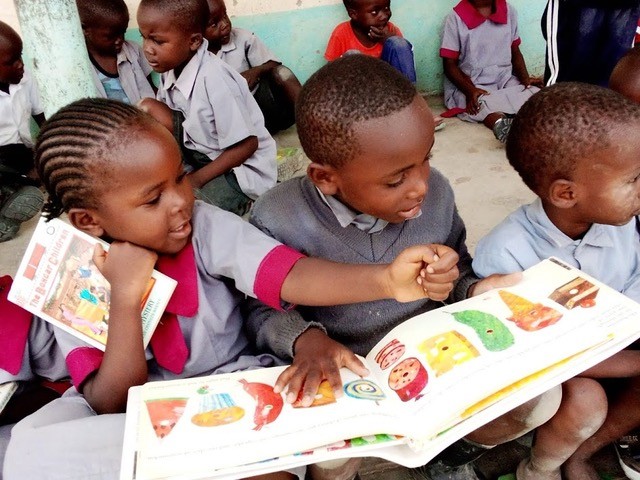
by Erika Rose Haack | Jul 20, 2021 | Feature, General, News
Portola Valley, CA. Local families are working through the African Library Project to get books into the hands of children in Sierra Leon, Ghana, Uganda, Kenya, Botswana, Malawi, and Lesotho. With the help of volunteers, the nonprofit establishes anywhere from 30-60 libraries per year, even during the pandemic throughout 2020. The process to launch a library is simple as the graphic below suggests, it involves gathering 1,000 gently used or new children’s books and making a $500 donation.
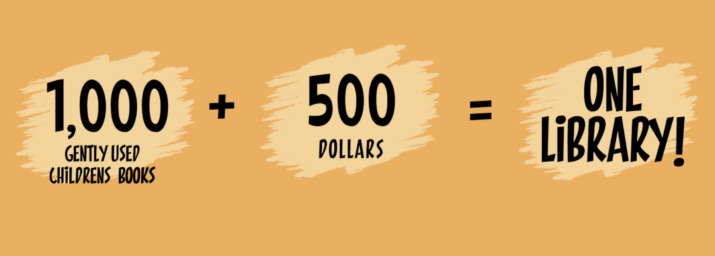
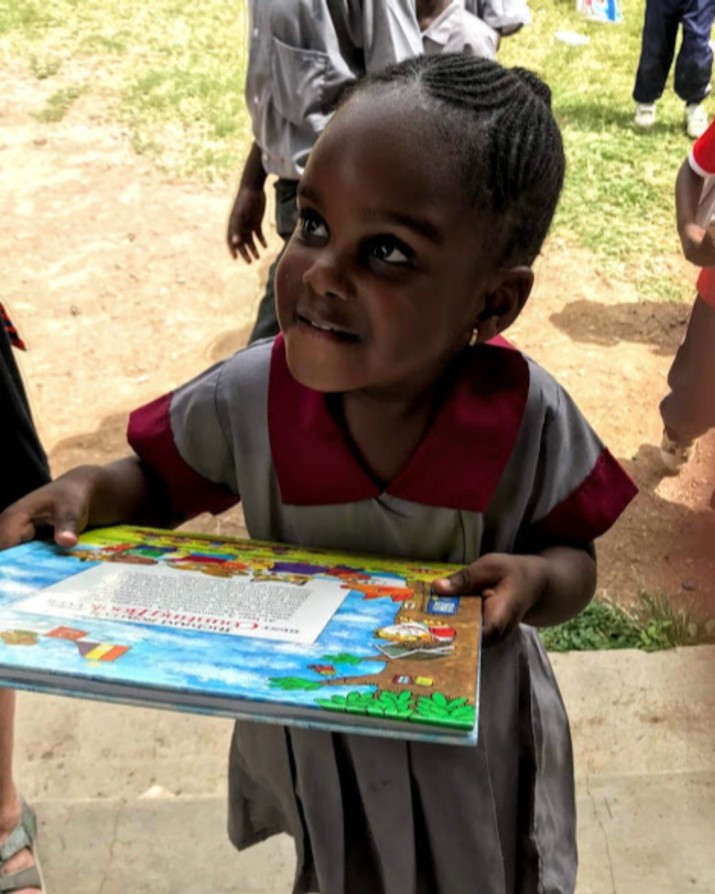
African Library Project establishes partnerships with African-based organizations that specialize in education, library, or community development. The partners must be capable of supporting the development of 30-60 libraries per year.
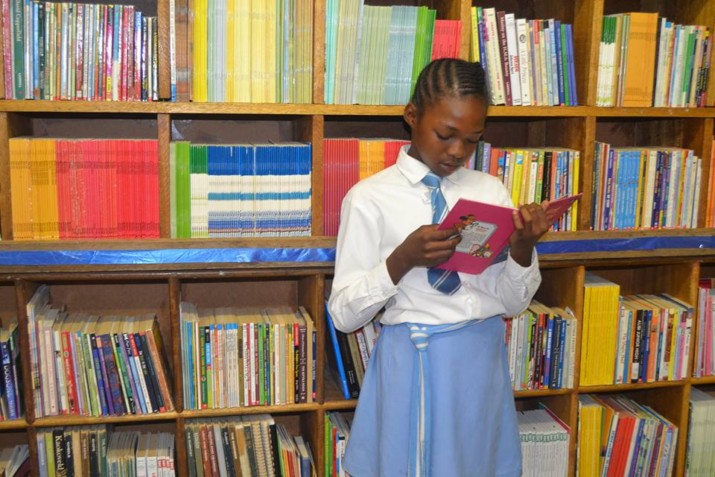
African Library Project works in English-speaking African countries that meet the organization’s criteria for sustainable library development. The nonprofit looks for countries that have a significant need for books and feature political stability, reliable transport of books to destinations, and a network of local organizations capable of organizing books into real, working libraries.

Partners and librarians in Africa unloading donated books. The African Library Project pays close attention to a recipient’s ability to sustain a working library.
Giving children access to books has become urgent because, according to a recent study, separation from the classroom as a part of global attempts to curb the spread of COVID-19 is negatively affecting their developing reading skills. The UN reports a significant decline in literacy and reading ability across the globe.
While all non-profit organizations have dedicated staff that work hard to affect change, most non-profits rely on volunteers. The months of social isolation during the COVID-19 pandemic have taken their toll on all of us. Many remember all the canceled activities and suspended obligations from March of 2020; the wondering in April and May of how long it was all going to last. Volunteer programs were not immune to the confusion of constantly shifting guidelines, nor the concerns for safe and healthy conditions. A report released by VolunteerMatch found that during the early months of the COVID-19 pandemic, greater than 50% of non-profit organizations were experiencing heavy cancellations from their volunteers. Now that many states are re-opening and attempting to return to a semblance of normalcy, a lot of us still feel trepidation at the idea of entering back into public life. Here‘s a little “How To” courtesy of the African Library Project on how you can volunteer to support children’s literacy, re-engage with your local community, and stay safe while doing it. The African Library Project’s online Resource Center features everything you need to help build a library in Africa. It includes fundraising ideas, book drive guidelines, marketing, and outreach tips, quality standards for donated books, and how to pack and ship your completed library.
Below is an example of a poster:

African Library Project advertisement for the 2021 Summer Book Drive volunteer event.
About The African Library Project:
The African Library Project was founded in 2005 by Chris Bradshaw and her family from Portola Valley, California. While visiting remote villages in Lesotho, a small mountainous kingdom in Southern Africa, Chris was inspired to work toward ending the cycle of poverty and illiteracy when she found out that there was only one public library in the country. She realized the simple act of establishing libraries within schools would have a profound effect on communities as a whole.
We are proud to partner with capable and hardworking organizations and individuals who are dedicated to promoting literacy and library development in Africa. In the United States, volunteers organize book drives and raise funds to ship the books overseas. Once those books are gathered and mailed, the African Library Project relies on a network of dedicated partners within Africa to get them to each community – no matter how far. In addition to selecting and vetting each library recipient, our trusted partners provide training on how to set up and run a library in a rural community. They also follow up to evaluate the use of our libraries and encourage good library practices. The African Library Project’s goal is to make sure our libraries remain active and continue to enrich those who need them the most.
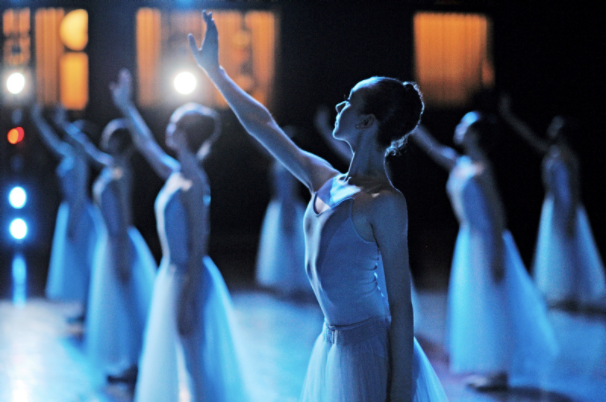
by Erika Rose Haack | Jul 6, 2021 | Coming Up, Feature, General, The Arts
SF, California. The San Francisco Ballet, in partnership with Stanford Live, announced its first in-person performance since shutting down in March 2020 in response to the COVID-19 pandemic. The performance, titled Starry Nights: SF Ballet’s Return to the Stage, will take place at the Frost Amphitheater the weekend of August 13-14. This will be the Company’s first performance at Stanford University in over 50 years. After seventeen months of virtual programming, dancers are thrilled to perform on stage. Artistic Director Helgi Tomasson says: “Starry Nights is a celebration of our dancers’ resilience and a symbol of gratitude to the community that has ushered us through this remarkable time.” Tickets go on sale July 10 at 12 PM via Stanford Live.

Core de Ballet performing a variation within the ballet “Serenade” Choreographed by George Balanchine (1935)
Established in 1933, the San Francisco Ballet is the oldest professional ballet company in the United States. By 1939, under the Company’s ballet master William Christensen, the SF Ballet performed the first full-length American production of Coppélia (1938). Its first international debut in 1957 featured performances in eleven nations across Asia and the Middle East, followed quickly by another tour to Latin America in 1958. In 1974 the SF Ballet established an extraordinary grassroots effort “Save Our Ballet” that rescued it from the brink of bankruptcy. Now, 88 years later, the Company remains one of the most preeminent ballet companies in the world.
The San Francisco Ballet was the country’s first arts organization that ceased performances in light of the burgeoning COVID-19 outbreak. Its 2021 season featured entirely virtual performances until now. The upcoming performance of Starry Nights includes George Balanchine’s Serenade (1935) and Tarantella (1964), as well as Danielle Rowe’s For Pixie (2017) to the music of Nina Simone. It will close with Helgi Tomasson’s The Fifth Season (2006) accompanied live by the San Francisco Ballet Orchestra conducted by Martin West. There will be two performances only.
From the San Francisco Ballet:
San Francisco Ballet, long recognized for pushing boundaries in dance, has a history of making history. Our mission is to share our joy of dance with the widest possible audience, both locally and around the world. Join us for our long-awaited return to live performances, featuring a thrilling blend of poetry and athleticism.
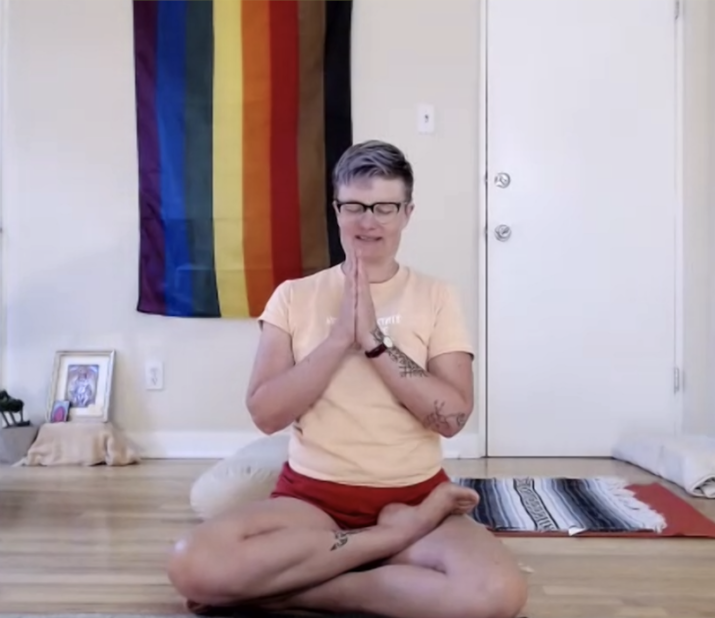
by Erika Rose Haack | Jun 29, 2021 | General, News
San Francisco, CA. The Iyengar Yoga Institute of San Francisco (IYISF) held its pride panel discussion “Uplifting LGBTQ+ Pride in Yoga” on Friday, June 26 via Zoom. The 60-minute panel featured queer and trans-identifying instructors from the Iyengar community discussing the intersection between their queer/trans identity and their Iyengar yoga practice. A 90-minute donation-based identity affirming practice preceded the event co-taught by panelists Avery Kalapa (they/them) featured above, and Nathan Blum (he/him). The yoga practice followed a theme of heart-openers, acceptance, and self-love with inclusive cueing.
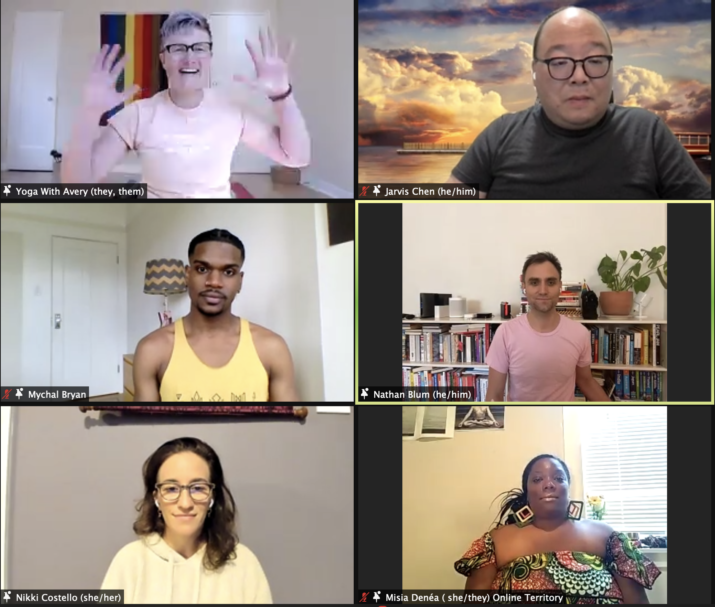
Panelists meet via Zoom to discuss the intersection between their identity and their yoga practice.
The IYISF is an asset of the Iyengar Yoga Association of Northern California (IYANC) officially established in 1976, although under a different name at the time, and located in Lower Pacific Heights. The lineage of Iyengar Yoga finds its origin on the Indian Subcontinent. Mr. B.K.S. Iyengar developed this method when he began teaching in 1936. It rose to prominence in the West after his first book Light on Yoga was published in 1966 and became an international bestseller. The Iyengar style of practice centers primarily on the importance of timing and alignment in āsana, the physical postures. It is well known for its strategic utilization of numerous props including blankets, blocks, straps, bolsters, chairs, sandbags, and more. The understanding is that balance and alignment achieved in the body are reflected in the state of one’s mind.
The sentiment that one’s yoga practice and identity are deeply intertwined presented as a common theme amongst panelists. Most panelists shared the experience of trying to keep their identities as queer separate from their identity as yoga teachers. They learned over time the challenge of keeping these identities separate revealed there is a link between the experience of yoga and the queer experience. Panelist Misia Denéa says her identity as a queer black gender non-conforming femme is an essential part of her yoga practice: “[Our] journey to enlightenment only comes through exploration and understanding of suffering. I bring my queerness with me to my mat and my [meditation] cushion because accepting it offers me the bandwidth to be with my suffering.”

Panelist Misia Denéa, owner of Hatha Hoslistic Integrative Wellness.
From the IYISF:
“The first Pride was a riot – and using the practice of Yoga to shed social conditioning and attachments rooted in avidya can also be a revolutionary act. This yoga includes āsana and philosophy to uplift your wholeness and create inner space to cherish the parts of you that don’t fit into cis-hetero norms. Queer perspectives shine a light on the path for us all on the journey towards inner freedom and collective healing.”
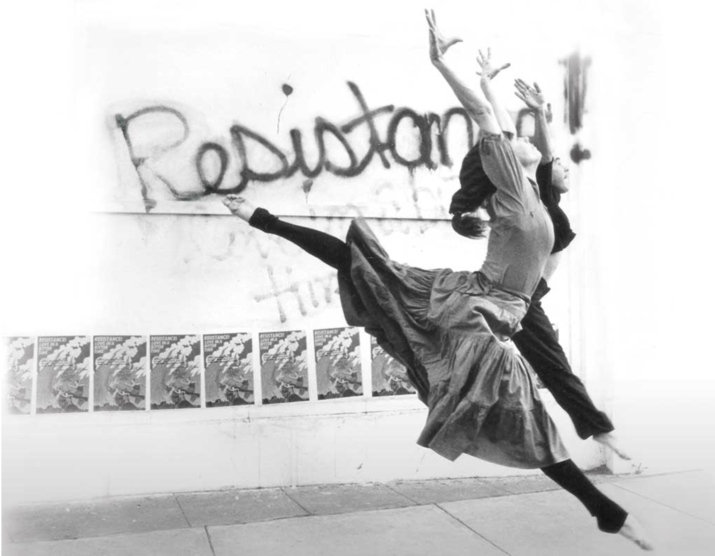
by Erika Rose Haack | Jun 22, 2021 | General, News, The Arts |
San Francisco, CA. The urgency of the moment in the wake of George Floyd was never lost on Dance Mission Theater. Founded on social change and resistance through dance performance, DMT took swift action in solidarity with the Black Lives Matter movement. Staff and board members established a Reparations Program to support dancers and artists of African descent. Krissy Keefer, Executive Director, released a statement outlining the theater’s response to the “gross inequities” laid bare by the COVID-19 pandemic. Their Reparations Program includes access to free theater space, free tuition for youth dance classes, reduced rates on rehearsal space, and half-off adult classes.
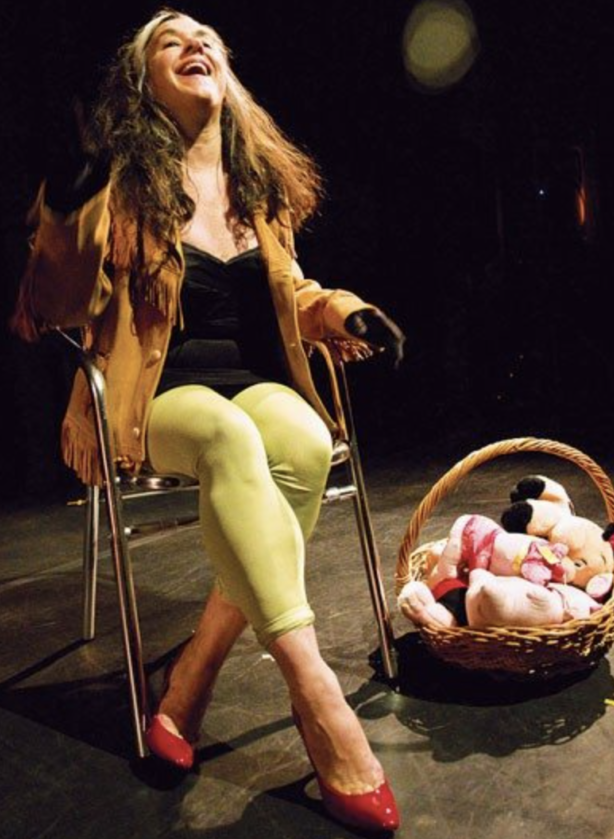
Krissy Keefer, co-founder of Dance Brigade and Executive Director of DMT. Photo from the San Francisco Examiner.
Dance Mission Theater originated in 1984 as a single feminist dance company, the Dance Brigade. The Dance Brigade spent 14 years establishing its artistic voice and community presence. In 1998 they created Dance Mission Theater, a 140-seat black box theater, and 3 dance studios located at 24th and Mission. To this day, Dance Mission Theater is a cultural hub for BIPOC, LGBTQIA+, and women artists. A flourishing inter-generational community, Dance Mission “connects and empowers [students of diverse backgrounds] through dance”. Classes and productions feature culturally rooted dance forms while exploring complex social justice issues. Dance Mission is dedicated to centering those marginalized by race, poverty, and gender in the arts. Providing accessible classes and spaces to Black students through their Reparations Program is a new step toward forwarding that goal.
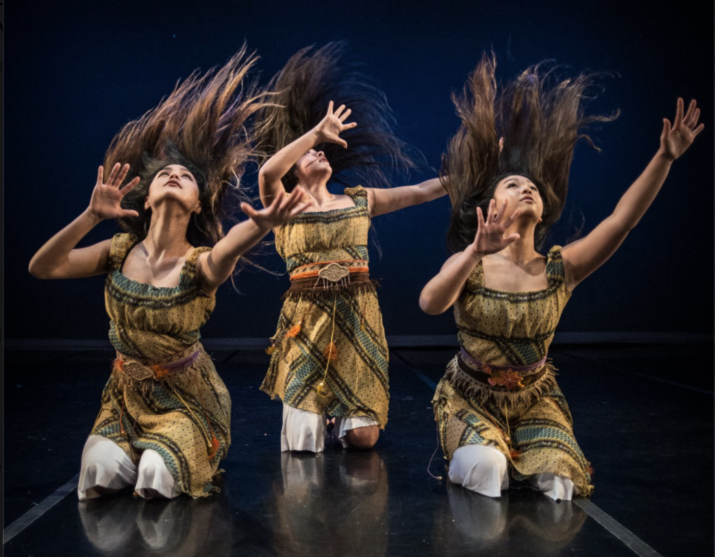
Grrrl Bridgade performs to Robbie Robertson’s song “Coyote Dance” at the Brigade’s 15th Anniversary Performance.
From Dance Mission Theater:
Dance Mission Theater operates from the understanding that the United States was founded on the genocide of Native peoples and the enslavement of African people and has neither apologized nor rectified this original wound. We are committed to programming that reflects the best efforts of who we are – BIPOC, LBGTQ+, and Children – to transform the culture of white supremacy, police brutality, and patriarchy to build a more equitable and peaceful world.
Author’s note: Ericka Hart, M.Ed. and anti-racist educator, calls attention to the fact that while Dance Mission Theater decided to term this program “Reparations” it is not actually reparations. Reparations are owed to Black people by the State because of the generations of wealth denied to the enslaved Black persons who produced them. Individual and community action separate from the State does not diminish nor replace that responsibility.





































